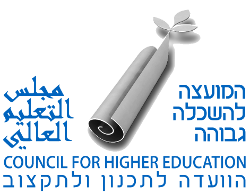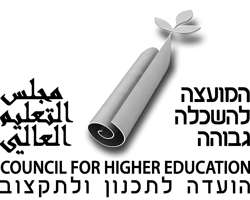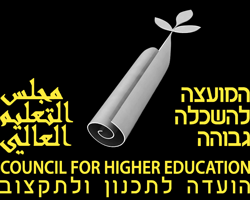Integration of Arab students in MA programs in psychology
- There are currently 35 MA students in psychology in all years of the program. The PBC expects that the number of Arab students in these programs will grow by approximately 50% in each class.
PBC Chairperson Prof. Yaffa Zilbershats said, “There is a severe shortage of Arab psychologists, which has a tangible and adverse effect on the mental health services provided to the Arab community. In light of the issues brought from the field and from the professionals at the Ministry of Health, we have created a far-reaching package to help Arab students overcome the challenges and find their place in programs for MAs in psychology.”
The PBC approved an allocation of NIS 6 million (over three years) to increase the number of Arab students in MA programs in psychology at the budgeted institutions of higher education in Israel. According to the PBC decision, the financial support will be provided to institutions that present academic and individual mentoring programs for the Arab students studying towards bachelor’s degrees in psychology and that are designed to help them continue towards master’s degrees.
There are currently 35 MA students in psychology in all years of the program. The PBC expects that as part of the plan, the number of Arab students in these programs will grow by approximately 50% in each class.
These programs must address the variety of difficulties the students face, including linguistic, academic, cultural, social and other issues. The program will provide mentoring for the students, beginning in their undergraduate work and through the processes towards acceptance to the MA program and during their MA studies. In the first phase, the program will be implemented as a pilot project for three incoming years, commencing in 2019.
The data the PBC received indicated that there are 198 Arab psychologists in Israel, in all areas of specialization, constituting only 3% of all psychologists in Israel. This number does not facilitate the provision of quality service to Arab society, which represents 20.8% of the total population. The need to increase the number of Arab psychologists is also a function of the linguistic and cultural gaps, which do not enable provision of quality and suitable services to Arab society by Jewish psychologists.
For the sake of comparison, the ratio of clinical psychologists per capita in the Jewish population is 1: 1,700, while in the Arab population it is 1:31,000.
Representation of Arab students in undergraduate psychology programs is 8.1%, approximately half of their general representation in undergraduate programs. Additionally, only 0.8% of Arab undergraduate students select this field compared to 1.6% among Jewish students, meaning that compared to the Jews, demand for this field is 50% lower.
In MA programs, representation of Arabs in psychology is significantly lower – at 3.1% compared to 8.9% in all MA programs at the budgeted institutions.
From an in-depth examination conducted by the PBC, it was found that admission to MA programs in psychology is particularly challenging for all students in Israel, and particularly for Arab students, for the following reasons:
- The requirement for a high grade point average in their undergraduate studies – Arab students must bridge numerous gaps when beginning academic studies, gaps that arise from linguistic and cultural issues that make it difficult for them to excel in their undergraduate programs.
- The MITAM (entrance exam for advanced degrees in psychology) – a national, uniform test, which is part of the MA admissions process, is conducted in Hebrew and includes texts in English. Arab students are in an inferior position when taking this exam, as Hebrew and English are their third and fourth languages. As the exam scores are relative, Arab student have a hard time competing against the Jewish students.
- Preparing a personal file and personal interview – these stages include personal and cultural aspects. Arab student may find it difficult expressing themselves properly due to these gaps.
In light of the above, the PBC decided that the additional budget will be given to academic institutions that submit a mentoring and guidance program for Arab psychology students that includes the following important points.
- Bachelor’s degree: Assistance overcoming language, academic, social and cultural issues during the undergraduate program, in order to increase the number of students who will be able to be accepted to MA programs.
- MA acceptance process: Improving ability to handle the process and the criteria for admission into an MA program, with an emphasis on subsidies and preparing for the MITAM exam, assistance in creating a personal file, admission interviews, and more.
- Helping students during their studies towards an MA in psychology with the academic and emotional difficulties through personal and group mentoring, designed to assist them complete their studies within or close to the standard amount of time.


